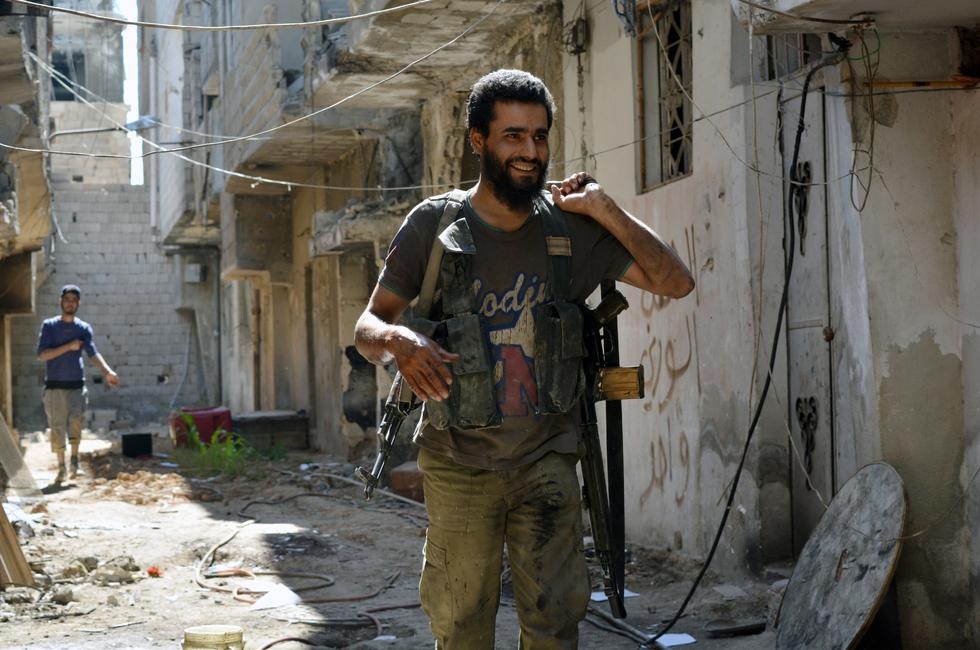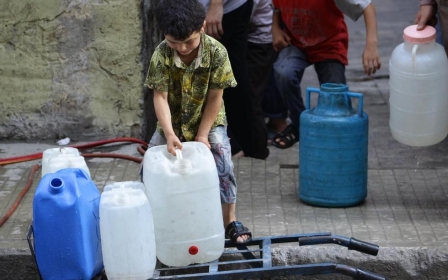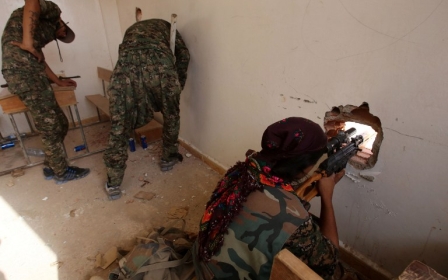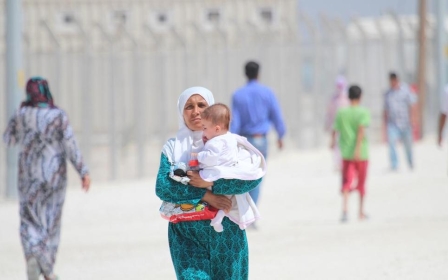Syria rebel group slams UK foreign policy

One of the largest rebel groups in Syria has criticised the UK government and vowed to protect minorities in a lengthy column with a leading British newspaper, in what many are seeing as a renewed attempt to begin a dialogue with the West.
Labib al-Nahhas, identified as the foreign affairs director of Ahrar al-Sham, wrote in The Telegraph on Tuesday that his group and others would “fight for the freedom” of all Syrians from “Assad, Iran and ISIL”.
Ahrar al-Sham is one of the largest groups fighting in Syria, with tens of thousands of fighters thought to be active on the ground.
Ahrar al-Sham has previously fought alongside the Islamic State (IS) – in late 2013 the IS group was forced to apologise after mistakenly beheading a fighter from Ahrar al-Sham, at that time a close ally against the forces of President Bashar al-Assad.
However, the groups fell out spectacularly in 2014. In September of that year, a bomb ripped through Ahrar al-Sham’s headquarters, killing 28 of the group’s top leaders in an attack widely blamed on IS.
In a 900-word column on Tuesday, Nahhas also criticised the UK’s policy on Syria, accusing it of “two years of inaction” by failing to take military action against Assad in 2013.
Instead, Nahhas wrote that political legitimacy in Syria demands “an organic and pragmatic approach” that safeguards “a major role for religion and local custom”.
Part of this approach, Nahhas writes, is Ahrar al-Sham’s role in preserving “Syria’s unity and territorial integrity” while “protecting minority communities”.
The lengthy spot given by the right-wing daily to Ahrar al-Sham comes amid efforts by other groups to boost their media presence.
Al Jazeera Arabic recently ran several hour-long interviews with Abu Mohammed al-Jolani, head of al-Qaeda’s Syria franchise, al-Nusra Front.
New MEE newsletter: Jerusalem Dispatch
Sign up to get the latest insights and analysis on Israel-Palestine, alongside Turkey Unpacked and other MEE newsletters
Middle East Eye delivers independent and unrivalled coverage and analysis of the Middle East, North Africa and beyond. To learn more about republishing this content and the associated fees, please fill out this form. More about MEE can be found here.




